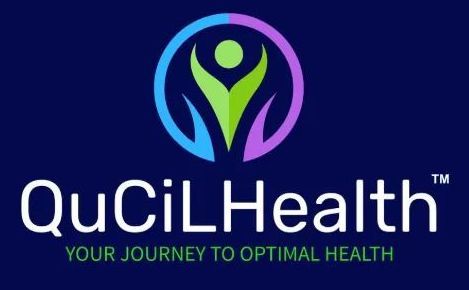Men’s Health: Hormonal Balance, Prevention & Longevity
Hormonal Balance & Testosterone Optimization
Why It Matters
Testosterone plays a crucial role in various aspects of health, including energy levels, muscle mass, bone density, libido, and metabolic function. Low testosterone, known as hypogonadism, can contribute to symptoms such as fatigue, mood fluctuations, and decreased muscle strength.
Clinical Insight
The TRAVERSE trial, which involved over 5,200 men over approximately 27 months, indicated no increased risk of heart attack or stroke when testosterone therapy is administered under medical supervision.
Supportive Habits
- Engage in strength training exercises
- Aim for 7–9 hours of quality sleep each night
- Incorporate healthy fats into your diet (e.g., olive oil, nuts, avocado)
- Limit alcohol consumption and develop strategies to manage stress
Preventive Screenings That Matter
Prostate Cancer Screening
It's advisable for men aged 55–69 to discuss prostate-specific antigen (PSA) testing with their healthcare provider. If you're at higher risk—due to family history or African ancestry—you might consider starting screening as early as ages 45–50.
Cardiovascular Health
Regular health check-ups are essential, including assessments of blood pressure, cholesterol, and glucose levels. Depending on your risk, your healthcare provider may recommend additional tests to assess inflammatory markers.
Colorectal Cancer Screening
Colon cancer is a leading cause of cancer-related deaths among men, but it is preventable through early screening.
When to Start: Men at average risk should begin screening at age 45.
Options Include
- Annual FIT (fecal immunochemical test)
- Stool DNA test (e.g., Cologuard) every 1–3 years
- Colonoscopy every 10 years
- CT colonography or flexible sigmoidoscopy every 5 years
Muscle & Bone Health = Vitality
Strong muscles are vital for metabolism, insulin regulation, and overall physical function. Resistance training also plays a significant role in slowing the aging process. Bone density naturally decreases over time, especially in individuals who smoke or consume alcohol excessively. Men aged 50 or older or those with risk factors are encouraged to consider a DXA scan to assess their bone health.
Fertility & Lifestyle
Lifestyle factors significantly influence sperm quality. Smoking can reduce sperm count and motility, while excessive alcohol consumption leads to oxidative stress and hormonal imbalances.
Supportive Steps
- Limit alcohol and tobacco usage
- Enjoy a diet rich in antioxidants (fruits, vegetables, nuts)
- Maintain a healthy weight and stay physically active
- Ensure adequate sleep and effective stress management
Core Lifestyle Pillars
- Nutrition: Focus on lean proteins, whole grains, vegetables, and healthy fats
- Exercise: Incorporate resistance training, cardiovascular activities, flexibility exercises, and designated rest days
- Sleep: Prioritize 7–9 hours of quality sleep each night
- Stress Relief: Engage in breathing exercises, pursue hobbies, and spend time outdoors
Men’s Health Checklist
| Health Area | Action Steps |
|---|---|
| Hormones | Check testosterone if experiencing symptoms; optimize through lifestyle changes or therapy under medical supervision. |
| Cancer Screening | PSA testing (starting at age 55, or 45 if at high risk); colorectal (beginning at age 45 as per guidelines). |
| Heart Health | Routine monitoring of blood pressure, cholesterol, and glucose levels. |
| Bone & Muscle | Regular resistance training; consider a DXA scan if having risk factors. |
| Fertility | Avoid tobacco and alcohol; maintain a healthy diet, ensure proper rest, and consider fertility testing if planning for children. |
Final Takeaway
Empower yourself with evidence-based habits: utilize testosterone therapy only when necessary and under monitoring; begin colon cancer screening at age 45; commit to regular prostate and heart evaluations; maintain muscle and bone health; and embrace a balanced lifestyle for optimum well-being.
References
- U.S. Preventive Services Task Force. (2021). Colorectal Cancer: Screening. JAMA, 325(19), 1965–1977. https://doi.org/10.1001/jama.2021.4417
- U.S. Preventive Services Task Force. (2018). Prostate Cancer: Screening. JAMA, 319(18), 1901–1913. https://doi.org/10.1001/jama.2018.3710
- Handelsman, D. J., et al. (2023). Testosterone therapy and cardiovascular events: A systematic review and meta-analysis. The Lancet Healthy Longevity, 4(2), e112–e123.
- National Institutes of Health. (2023). TRAVERSE trial: Testosterone therapy and cardiovascular risk. ClinicalTrials.gov identifier NCT03518034.
- American Cancer Society. (2023). Colorectal cancer screening guidelines. Retrieved from https://www.cancer.org
- American Urological Association. (2023). Early detection of prostate cancer guideline. Retrieved from
https://www.auanet.org
Introduction
Maintaining good health goes beyond simply adding years to your life; it's about living fully and vibrantly. For men, this involves a keen focus on hormonal health, muscle strength, preventive screenings, and day-to-day lifestyle choices that influence everything from heart health to fertility. Here’s essential information tailored for men to help them remain proactive about their health.

